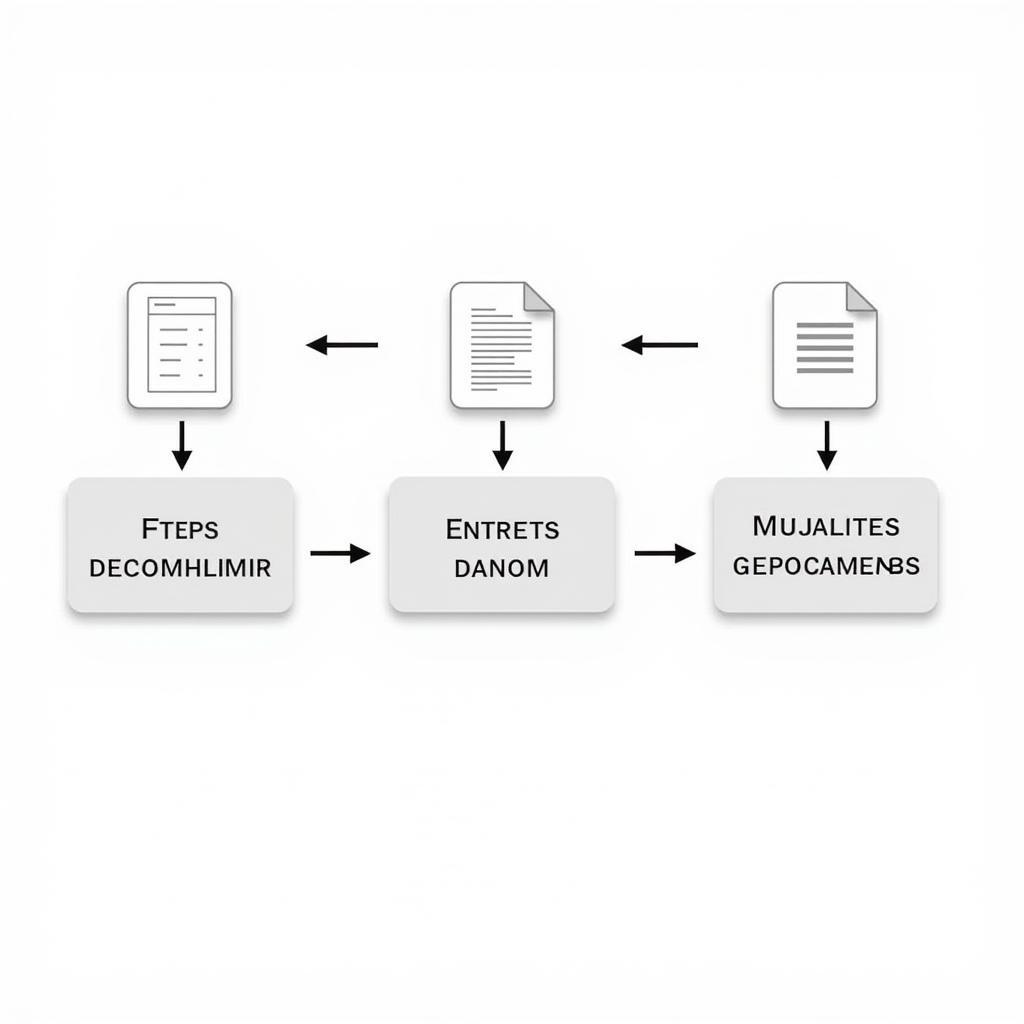Understanding the intricacies of APK reverse engineering and ad removal can be quite the endeavor, especially for those new to the world of Android app modifications. This comprehensive guide aims to demystify these processes, providing you with the knowledge to navigate this complex landscape.
What is APK Reverse Engineering?
APK reverse engineering is the process of deconstructing a compiled Android application package (APK) to understand its source code and inner workings. Essentially, it’s like taking apart a car engine to see how each component functions.
 APK Reverse Engineering Process
APK Reverse Engineering Process
Developers often utilize this technique for various reasons, including:
- Security Analysis: Identifying vulnerabilities and potential security loopholes within an application.
- App Modification: Altering existing features, functionalities, or even removing unwanted elements like ads.
- Competitor Analysis: Examining how competitor apps are built and incorporating successful strategies.
Tools of the Trade: Essential Software for APK Reverse Engineering
Several tools are commonly employed in the process of APK reverse engineering, each serving a specific purpose:
- APK Decompilers: These tools transform the compiled code (DEX bytecode) within the APK back into a more readable format like Java. Popular options include JADX, APKtool, and jadx-gui.
- Disassemblers: If decompilation isn’t feasible, disassemblers come into play. They translate the bytecode into assembly language, providing a lower-level view of the code.
- Debuggers: Tools like Android Studio’s debugger allow you to step through the app’s code execution, understand its logic, and pinpoint potential issues or areas of interest.
- Code Editors: A good code editor is crucial for navigating and analyzing the decompiled or disassembled code. Sublime Text, Visual Studio Code, and Atom are popular choices.
Delving into Ad Removal: Understanding the Process
Ads have become an integral part of the mobile app ecosystem, often serving as the primary revenue stream for developers. However, intrusive or excessive ads can negatively impact the user experience.
Removing ads from APKs generally involves the following steps:
- Identifying Ad Libraries: Analyze the decompiled code to pinpoint the libraries responsible for displaying ads within the app. Common ad networks include AdMob, Unity Ads, and StartApp.
- Locating Ad Display Triggers: Trace the code to find where and how ads are called and displayed within the app’s logic. This could be at specific intervals, during transitions, or after certain actions.
- Modifying or Removing Ad-Related Code: Depending on your objective, you can either comment out, delete, or modify the code responsible for fetching, loading, and displaying the ads.
- Rebuilding and Signing the APK: After making the necessary modifications, repackage the APK and sign it with a new certificate to ensure it can be installed on your device.
Ethical Considerations and Potential Risks
While APK reverse engineering and ad removal might seem appealing, it’s crucial to be aware of the ethical implications and potential risks:
- Violating Terms of Service: Modifying apps without permission might breach the developer’s terms of service, potentially leading to account suspensions or legal issues.
- App Instability and Malfunctions: Improper code modifications can render the app unstable, leading to crashes, data loss, or unexpected behavior.
- Security Vulnerabilities: Tampering with the app’s code can inadvertently introduce security loopholes, making it susceptible to malware or data breaches.
Frequently Asked Questions
1. Is APK reverse engineering legal?
The legality of APK reverse engineering varies depending on your jurisdiction and the purpose of the modification. Generally, it’s considered acceptable for educational purposes or security research. However, distributing modified apps without permission or for commercial gain can have legal ramifications.
2. Can I remove ads from any Android app?
While technically possible, the ease of ad removal depends on how the app is designed and obfuscated. Some apps employ more sophisticated techniques to make reverse engineering and ad removal challenging.
3. What are the alternatives to ad removal?
Consider using ad-blocking software, subscribing to premium versions of apps, or supporting developers through in-app purchases if you want to avoid ads ethically.
Looking for Powerful APK Modification Tools?
Explore our curated collection of apk decompile compile tool, offering a wide range of options for both beginners and experienced users.
Want to edit videos like a pro? Check out our xvideostudio video editor pro apk for advanced editing capabilities.
Conclusion
APK reverse engineering and ad removal can be powerful techniques for understanding, modifying, and enhancing your Android app experience. However, it’s imperative to proceed with caution, respecting ethical boundaries, and being mindful of potential risks. Ensure you have a firm grasp of the technical aspects and legal implications before embarking on this intricate journey.
Remember, responsible exploration and ethical considerations should always be paramount when delving into the world of APK modification.
Need help with APK modification? Contact us at Phone Number: 0977693168, Email: [email protected], or visit our office at 219 Đồng Đăng, Việt Hưng, Hạ Long, Quảng Ninh 200000, Việt Nam. We have a dedicated customer support team available 24/7 to assist you.